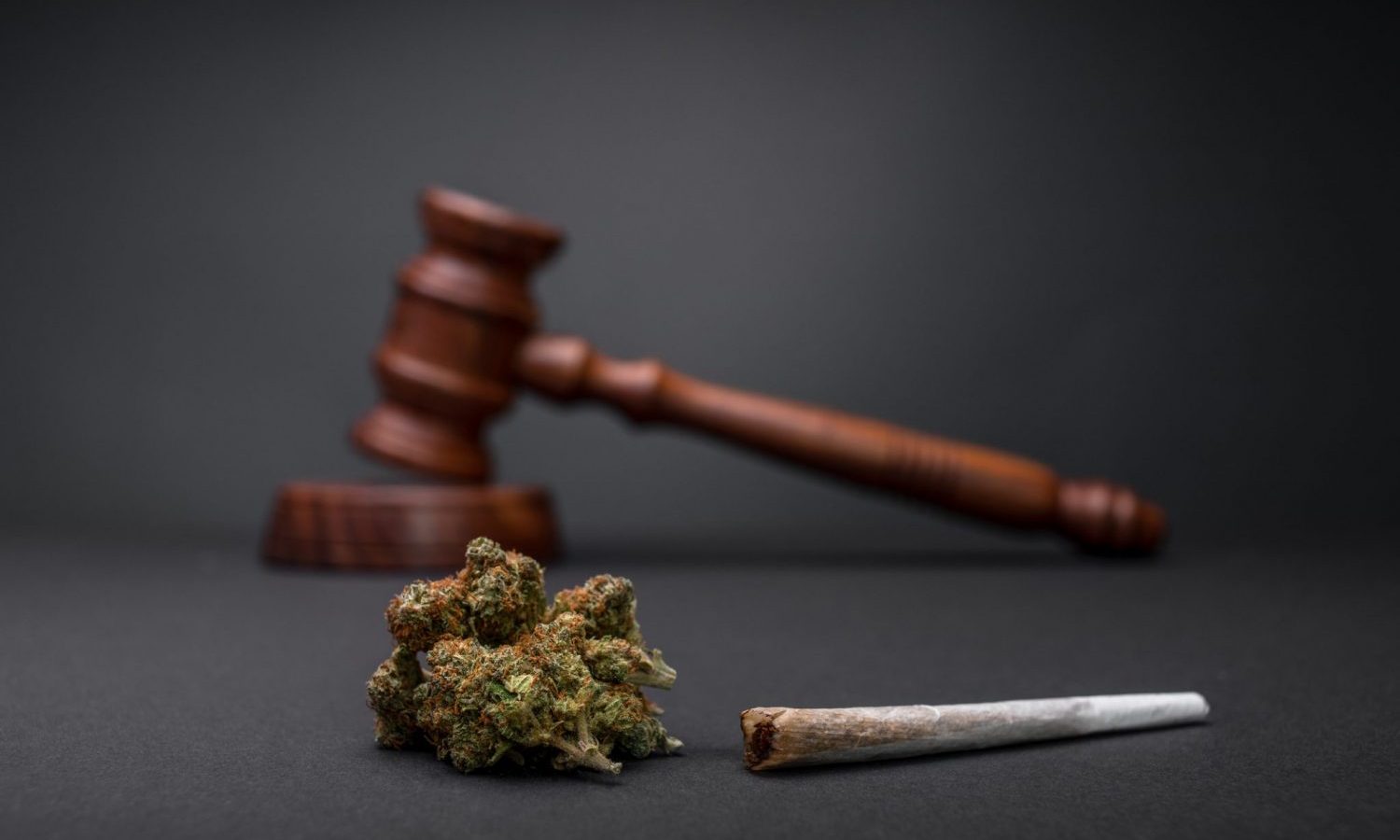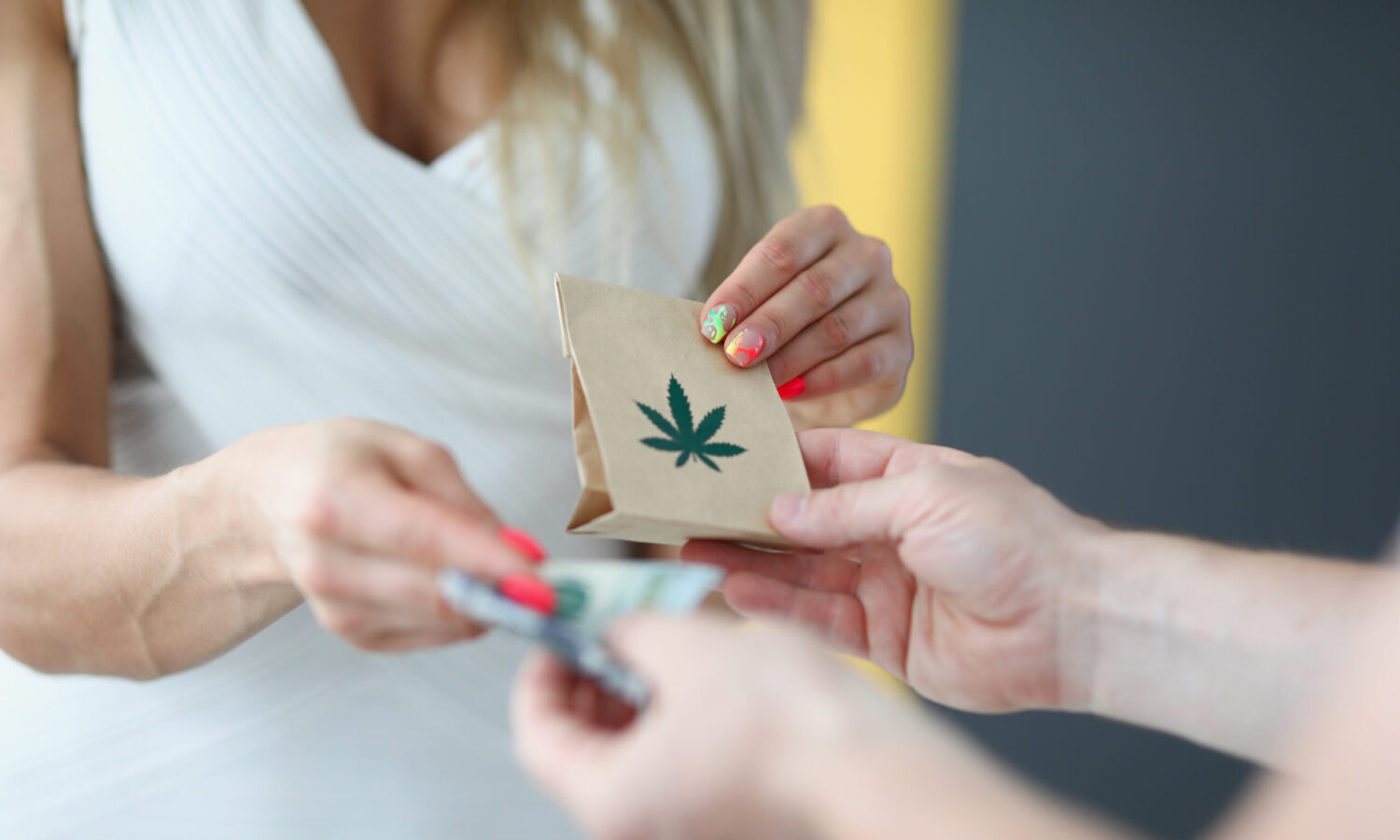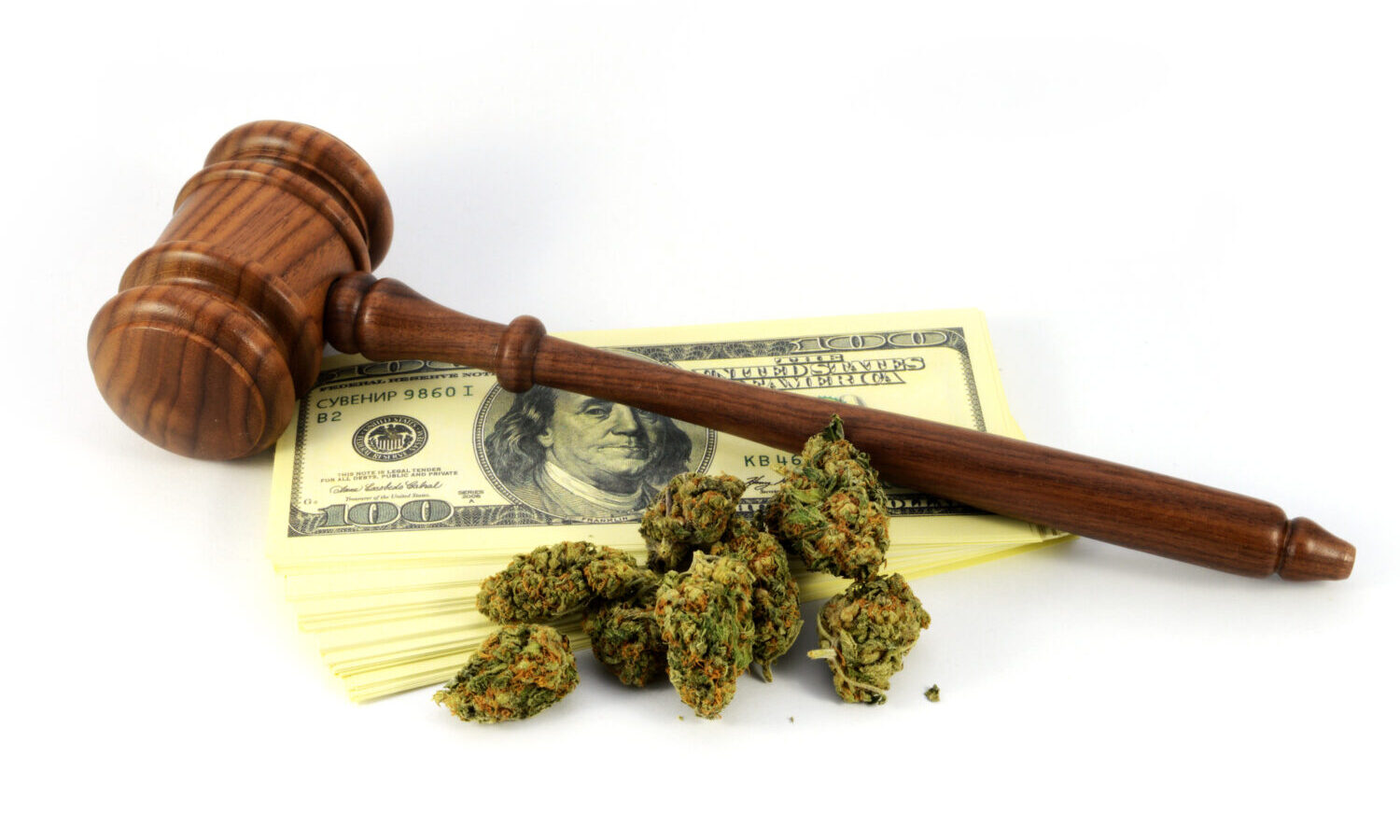The cost of fighting charges can be staggering, making it a common tool of anti-cannabis movements and individuals.
By
Charges stemming from the Racketeer Influenced and Corrupt Organizations (RICO) Act have long been a looming threat in the cannabis industry. Coming from civil, state and federal levels, the charges have been used as a method to stymie cannabis operations, whether just or not.
Established in 1970, US RICO charges were initially meant to pursue high profile mob bosses, but now cover a range of offenses, including gambling, money laundering, slavery, racketeering and a slew of other illegal business allegations.
To date, most cannabis RICO cases have been unsuccessful. Still, the process can do immense damage to brands.

While cannabis companies have turned the tables using RICO charges at times, the industry remains primarily in the crosshairs. In July, four Arkansas operators saw charges filed by three medical patients alleging overstated THC potencies.
Should The Industry Be Concerned?
Responses from operators and legal professionals varied when asked if the industry should fear or worry additional RICO charges.
Most agreed the still federally illegal industry faced risks for RICO and other federal charges. However, sentiment varied about who should be afraid, noting the importance of compliance and the largely failed track record of RICO charges so far.
“All cannabis companies should fear the potential of federal organized crime-type charges,” said Papa & Barkley CEO Guy Rocourt, noting the ongoing federal laws against cannabis.
Meg Nash, counsel for firm Vicente Sederberg is also concerned about federal law.
“As long as cannabis remains federally illegal, there is always some risk that aggrieved individuals will seek to use the RICO statute as a basis for asserting claims against cannabis brands.”
Nash added that RICO cases against cannabis companies have traditionally not fared well for the Feds, “due to the many elements that comprise the cause of action.”
Recent examples include a California federal judge acquitting a cannabis company on charges of moving products on a shared road in Santa Barbara County, with the judge noting the county failed to demonstrate the harm it experienced.
In May 2020, 226 Orgeon cannabis companies beat racketeering charges filed by a woman claiming that a nextdoor cannabis processor had harmed her in some way in 2018.
Victory for the prosecution comes at a cost as well.
“The reality is federal RICO Act civil suits are very costly to initiate and prosecute and very difficult to win,” said Craig Small senior attorney at Clark Hill’s Denver office. Small said most federal RICO civil suits are dismissed with a small fraction resulting in settlements or judgments against the defense.

Despite the reported low success rate, RICO charges can damage acquitted parties.
Clark Wu, Esq., an attorney for Bianchi & Brandt, said “cookie-cutter allegations” with focuses on security or nuisance-type charges, like alleged odors, have not fared well in court.
Still, the cost of fighting charges can be staggering, making it a common tool of anti-cannabis movements and individuals. If a company loses their case, it can be on the hook for up to three times the damages. Win, and the company must face expensive legal bills.
Facing expensive outcomes either way, Wu noted that many cannabis brands opt to settle before reaching court.
Mislabeled Cannabis Products
Wu said that the Arkansas case follows similar charges regarding the illegal status of cannabis operations. However, he said “the suit pivots from the traditional angles to attack a trending issue: the inflation of THC claims in cannabis products.”
Mislabeling has been an ongoing issue with various cannabinoids.
In recent years, the CBD space has found itself in the crosshairs of damning studies:
- A 2017 Penn University analysis of CBD products sold online found fully 70% were mislabeled.
- In 2022, Johns Hopkins Medicine researchers tested more than 100 OTC CBD products. Only 89 of the products listed CBD potency on the label. Just 24% of products were accurately labeled, with in-store products averaging 21% more CBD than advertised.
From labs to sales shelves, the willingness to misrepresent products appears to stem from a desire to appeal to customers and stay in business.
RELATED: Federal Lawsuit In Arkansas Considering RICO Act: Is This The End Of Medical Marijuana In The State?
Roger Brown, president and founder of ACS Laboratory said the sources of mislabeled products come from growers and suppliers seeking labs willing to produce higher THC results. He reports losing “significant business” as companies seek to work with labs providing the most favorable THC and cannabinoid profile results.
Brown pointed to certain state budgets that prevent adequate enforcement.
“The regulators look at the results, chromatograms and data but not how the data is gained or gathered,” he said, adding the status quo breeds contempt for the program’s rules and regulations.
Most professionals Benzinga spoke with indicated they felt that RICO charges were extreme in cases like the four Arkansas operators. However, they believe that some form of punishment is needed to deter any industry long-struggling with mislabeled products.

Brown feels additional charges will come to brands alleged of knowingly misrepresenting products. Not everyone agreed.
Matthew Morgan, a cannabis industry advisor who has helped co-found several brands, including Ignite International Brands Ltd and Green Axis Capital, views Arkansas as an isolated incident.
“I believe cannabis is very low on the list of priorities for the Federal Government,” said Morgan, noting that regulators “Have much bigger concerns to address.”
No matter the case, Vicente Sederberg’s Nash does not see much of the industry at risk, noting a largely industry-wide compliance to state and federal rules.
“To the extent that any cannabinoid misrepresentation occurs in the cannabis space, it is the exception and not the rule,” said Nash.
This article originally appeared on Benzinga and has been reposted with permission.


